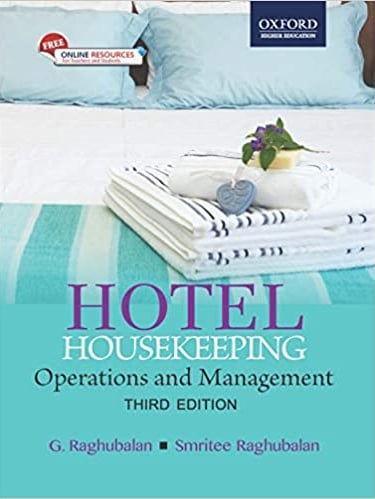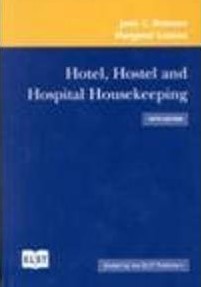Introduction
The front office department plays an important role as a hotel face, the first and direct point for guest contact. The main responsibility for the Front Office team is effective to handle guest situations and complaints, as it MAINLY affects guest satisfaction, the hotel's reputation and repetitive OPERATIONS.
In a very competitive hospitality environment, the situation management is not about solving problems, but also about converting a negative experience into a positive manner. Effective handling requires a mix of emotional intelligence, service skills, operational knowledge and situation management capacity.
In the Hotel’s operation it is not just solving a problem - it is about protecting the brand, maintaining the guest and demonstrating service expertise. Front Office employees must be trained in both technical sop and mutual skills to succeed in the environment with high pressure.
A well -operated complaint can convert a dissatisfied guest to a loyal ambassador to your hotel.
Types of Guest Complaints – Detailed Classification
Understanding a number of complaints helps hotel workers to estimate guest expectations, identify service gaps and provide appropriate answers.
1. Complaints related to service
These laws or failure to provide the necessary services. These complaints date from delay, poor performance or lack of responsibility from the hotel staff. Guests expect efficiency and fast service, especially in luxurious and commercial hotels. General service -related problems include late -room service, unprofitable, unprofessional behavior or incorrect information from the reception. In many cases, the cause of communication distribution, inadequate training or understanding. If it is not raised quickly, such complaints can lead to disappointment and poor online review. These require active listening, honesty and immediate corrective measures, such as early service, personnel shingle or a gesture of benevolence to restore confidence.
Example:
A guest comes to the hotel after a long flight, but the room is not clear even after a check -in time. They complain about the reception.
Situation Handling:
If you are available, you can offer an alternative room, give the desired drink in the salon and keep the guest updated.
2. Construction complaints
These belong to the infrastructure of the hotel or a breakdown or malfunction in technology.
Guests expects that the physical infrastructure and space facilities of the hotel work properly. Complaints related to convenience arise when guests face problems with air conditioning, lifting, lighting, plumbing, electrical outlets, TV or internet connection. These problems interfere with guests' comfort and can be especially problematic for business travelers or older guests. The most common causes include a lack of preventive maintenance, aging infrastructure or delayed repair. Front office employees should work immediately by contacting engineering, offering an alternative solution (eg a separate room) and informing the guest. Apparently, communication and active follow -up are necessary to show responsibility and maintain guest satisfaction.
Example:
A corporate guest called the reception at 11am and said that the air conditioner does not work and that the room is very hot.
Situation Handling:
Send the engineering staff immediately. If unresolved within 15 minutes, you can switch or upgrade the room.
3. Cleanliness and Hygiene Complaints
These are quite sensitive and can seriously damage the hotel's prestige.
Cleanliness is a basic expectation of any guest, and any deviation can seriously affect the hotel's reputation. Complaints often include dirty linen, stained towels, dust surfaces, smelly rooms, insects or poorly made bathrooms. These problems can be regarded as neglect of care regardless of their case. Complaints of cleanliness are particularly harmful during increased health awareness, for example during the epidemic. Such complaints often indicate deficiencies in household supervision or turnover between guests. Resolution requires instant forgiveness, deep cleaning or changes in the room and sometimes a free service. Ensuring high hygiene standards is up-to-the mark in today's competitive hospitality environment.
Example:
A guest reports a hair or stained bedding on the bathroom floor.
Handling tips:
With an apology, offer instant deep cleaning or changes in the room, and can be offered some compensation or service recoveries offer as per situation.
4. Billing complaints
Guests often check the bill during check -out, and all errors or confusion can cause dissatisfaction.
Misconceptions related to fee on guest invoice. These may include controversy on unauthorized mini -taxes, double invoicing, incorrect tax application or package. Such errors destroy confidence and can cause delays during the checkout and cause guest irritation. Often, invoicing problems are the result of poor coordination between departments (exp. room service, reservation, front office). In order to resolve them, employees must carefully undergo folio, remain patient and polite, and the obligation person should increase complex cases. Transparent billing practices and guest training in check -in can prevent many of these conflicts.
Example:
A guest claims that he never consumed the minibar product for which he was charged.
Situation Handling:
Review minibar posts, talk to household. If you are unclear, forgive the charge of maintaining goodwill.
Make sure bills are rechecked before handing over to guess to avoid any errors.
5. Noise and Disturbance Complaints
These are caused by external or internal noise sources that interfere with peace.
Peace and privacy are the main components of a positive hotel experience. Guests usually complain about events, cleaning wagons, lifts, neighboring rooms or excessive noise from external construction. Families with business travelers or children are particularly sensitive to noise disorders. Failure to the soundproofed space, poor planning of events or relaxing guest control policies often contributes to the problem. In order to address such complaints, employees in the front office must offer space transfer, ear plugs or a composite facility. If the problem is recurrent, hotel management should consider operating changes as sound obstacles or better event time. Stopping disorders is important to ensure comfortable migration.
Example:
In room 508, a guest complains of loud music from a wedding in the banquet hall.
Handling tips:
With apologies try to convince with the situation, if guest agrees replace the room, or offer some service recovery, especially if the noise continues late.
6. Reservation and Booking Errors
These usually occur from misunderstanding or system defects.
Incorrectly related to space reservation often causes dissatisfaction with guests before they also check. These include crazy room types, lack of preferences (exp. smoking/smoking, access requirements), unconfirmed initial check -in or overbook conditions. Such problems usually occur due to system errors, misunderstandings with online travel agencies (OTA) or internal inspection. These complaints are very sensitive, as they affect the first impression of the hotel guest. Front office employees should apologize, confirm the guest order source and work quickly to resolve the problem by offering or upgrading and offering compensation to the requested space. Transparent communication and active confirmation help to reduce such errors.
Example:
A guest booked a royal bedroom through an OTA, but upon arrival, only one twin room is available.
Handling tips:
I honestly apologize, check if a king room can be arranged later, and offer free food or upgrade.
Complaint Handling Procedure – Step-by-Step
Handling guest complaints systematically helps avoid escalation and rebuild guest trust.
1. Listen Attentively
• Keep your posture relaxed and make eye contact.
• Allow the visitor to voice their worries without interjecting.
• Make written or mental notes on important information.
2. Show Empathy and Understanding
• Employ sympathetic expressions such as "I can understand how upsetting this must be for you." Or said "I’m truly sorry for this inconvenience."
• This establishes a human bond.
3. Apologize Sincerely
A sincere apology is necessary regardless of whether the guest is at fault or the problem is external (such as a power outage).
Steer clear of defensive language. Use expressions such as: "I'm sorry for the difficulties you've faced."
4. Investigate the Issue
• Examine the appropriate departments, internal communication records, booking source, and guest history.
• When obtaining information, keep your tone neutral.
5. Offer an Immediate Solution
• Adjust the solution according to the severity, availability, and guest profile (VIP, corporate, long-stay).
• If remuneration is a factor, always get advice from your duty manager or supervisor.
6. Implement the Solution Promptly
• Time is of the essence. An issue that is not resolved right away may cause more discontent.
• Update the visitor on developments.
7. Follow Up
• Once the problem has been fixed, give the visitor a call or stop by to make sure they are satisfied.
•For future use, record the complaint in the system.
Handling Typical Front Desk Situations –
Professionals working in the front office need to be ready for a range of demanding and dynamic situations. Key scenarios and effective management techniques are listed below.
Situation 1: Overbooking Scenario
For instance, the hotel is completely reserved. There isn't a room available when a guest arrives with a confirmed reservation.
Reaction:
• Offer a heartfelt apology.
• Make reservations at a hotel in the area that is at least as good.
• Known as a "walk guest" procedure, it involves paying for transportation, a one-night stay, and providing a complementary service.
Situation 2: Aggressive or Rude Behavior by the Guest
Example: A billing disagreement causes a guest to start yelling during the reception.
Reaction:
• Don't react emotionally and keep your cool.
• To discuss the issue, invite the visitor to a private space.
• If required, involve security or a senior manager.
Scenario 3: Visitor Falls I was sick at the reception.
Example: In the lobby, a visitor unexpectedly passes out.
Reaction:
• Notify the duty manager and personnel who have received first aid training.
• Make a medical assistance call.
• Preserve the privacy and dignity of visitors.
Situation 4: Unannounced Arrival of a VIP Guest
Example: The personnel was not notified when a well-known visitor arrived.
Reaction:
• Express regret for being unprepared, but act fast.
• Provide a free welcome drink, expedited check-in, and a room upgrade.
• If special arrangements are needed, let housekeeping and F&B know.
Situation 5: During peak hours, a guest requests an early check-in.
Example: The hotel is full and a guest comes at 6 AM, but check-in is at 2 PM.
If at all possible, provide free early check-in to loyal customers or returning visitors.
Response:
Check if any room is available or arrange a paid early check-in.
Offer lounge access or breakfast while they wait.
If guest is a loyalty member or repeat guest, offer complimentary early check-in if possible.
Key Terms for Situation Handling
Service Recovery: Actions taken to make up for a service failure.
Complaint Log: Official record of guest complaints and resolutions.
Empathy: Understanding and sharing the feelings of others.
Conflict Resolution: Strategies used to settle disputes calmly.
Service Recovery Paradox: When a guest becomes more loyal after a well-handled complaint than if no issue occurred.
SOP (Standard Operating Procedure): Set procedures for handling various situations.


FRONT OFFICE











